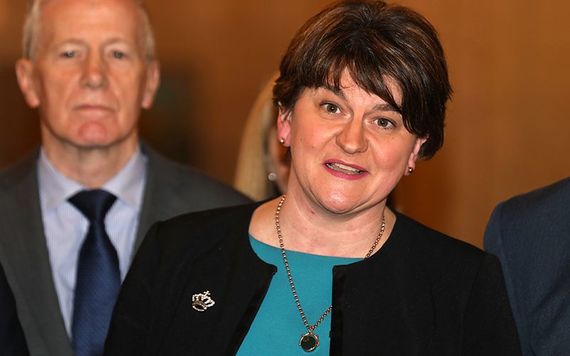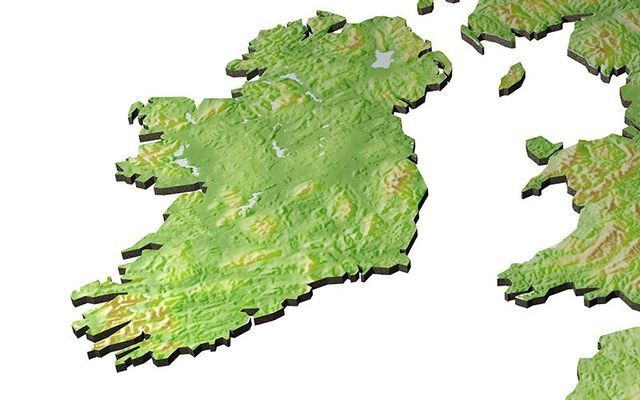Recently, Arlene Foster, the leader of the Democratic Unionist Party (DUP), spoke out in opposition to Northern Ireland being treated differently from the rest of the United Kingdom in a post-Brexit world.
She suggested that Belfast’s biggest trade partner was the British mainland and that her party would not accept any economic checks or borders along the Irish Sea. In making her pro-hard Brexit argument, Foster inadvertently stated the most sensible sentence of her political career: “I hope that there is realism that you cannot separate out part of a nation from the rest of the nation.”
Foster used this sentence to justify Northern Ireland’s position within the United Kingdom and the importance of a hard Brexit, but her statement makes more historical and political sense when referring to the unity of Ireland.
At the turn of the twentieth century, Irish nationalism was at its peak after the Easter Rising. Sinn Féin, the leading Republican party, won 70% of the vote in the Irish General Election, the last general election to be held in an all-island capacity, and the Irish formed their own parliament known as Dáil Éireann.
Read more: The DUP's 'no surrender' Brexit stance is unraveling the union

DUP leader Arlene Foster. Image: RollingNews.ie.
The British Empire and Ulster Unionists, unwilling to accept the popular demand of the people, refused to recognize the Dáil. This led to the Irish War of Independence and eventually to the partition of the country. Ireland was partitioned under the Government of Ireland Act 1920 and the Anglo-Irish Treaty.
The will of the majority of Irish people to form a free and independent Irish Republic was ignored. Instead, two states were formed. The Irish Free State and Northern Ireland represented the division in Ireland in actual fact.
From its inception, Northern Ireland was politically dubious and undemocratic. The state had been formed through militant unionists threatening war, conservative imperialists unwilling to give up their first colonial territory, and backhanded deals among Westminster politicians.
Even so, the natural division of the country would have involved creating a state out of all nine counties of Ulster, rather than the six counties carved out to form the borders of Northern Ireland. But the British realized inclusion of all nine counties would give nationalists a majority in the new state, so they removed the overly Catholic counties of Cavan, Monaghan, and Donegal. The logic behind this decision was to create “a Protestant parliament for a Protestant people.”
Read more: Likely violence in London, Dublin if British push through Brexit hard-border
WATCH: DUP leader Arlene Foster tells @bbclaurak the prime minister has given up on a better #Brexit deal but insists "I have not" pic.twitter.com/yfVQ2FMbNG
— BBC News NI (@BBCNewsNI) November 27, 2018
The division of Ulster and the island as a whole made little economic or social sense. It created a region with a Protestant majority that ruled over a Catholic minority that felt detached from the state and disenfranchised by those in power.
This was seen clearly in the tension in cities such as Derry and Belfast, which had significant Catholic populations. Moreover, Ireland could have thrived with two major industrial cities in Dublin and Belfast. Similarly, farmers in County Down surely had more to gain building solidarity with rural workers in Cork than in England.
Instead of a united Ireland that could build on independence to create a sustainable, economically robust nation in the twentieth century, Ireland was left with two divided nations and with competing social, economic, and political institutions.
Ahead of Theresa May's visit to Northern Ireland today, Arlene Foster says the PM is "wasting time" and accuses her of engaging in "propaganda" https://t.co/zjFAQsDgM2
— Siobhán Fenton (@SiobhanFenton) November 27, 2018
Arlene Foster is correct in that a nation cannot thrive when divided, but she was talking about the wrong nation. Brexit provides an opportunity for the Irish people to reevaluate the post-1920 established order.
The island of Ireland has demonstrated that it is overwhelmingly more pro-EU than the UK. In direct contrast to Foster’s comments, Northern Ireland voted by over 56% to remain during the United Kingdom European Union Membership Referendum of 2016, while over 70% of people in the Republic of Ireland support membership in the EU. In addition, polling in Northern Ireland has demonstrated that support for reunification with the Republic as a member of the EU was greater (48%) than support for staying in the UK (45%).
Moreover, post-Brexit independence may be linked with economic prosperity. The North of Ireland was once considered more prosperous than the South, but recent studies have found that the South will continue to surpass the North economically in a post-Brexit world. Of the 144,000 jobs projected to stream into the island by 2020, only 3% of those will go North of the border.
Brexit is a chance for Ireland to look at the harm partition has done to the nation and conclude that “you cannot separate out part of a nation from the rest of the nation.”
Do you agree? Let us know your thoughts in the comments section, below.
This article was submitted to the IrishCentral contributors network by a member of the global Irish community. To become an IrishCentral contributor click here.




Comments